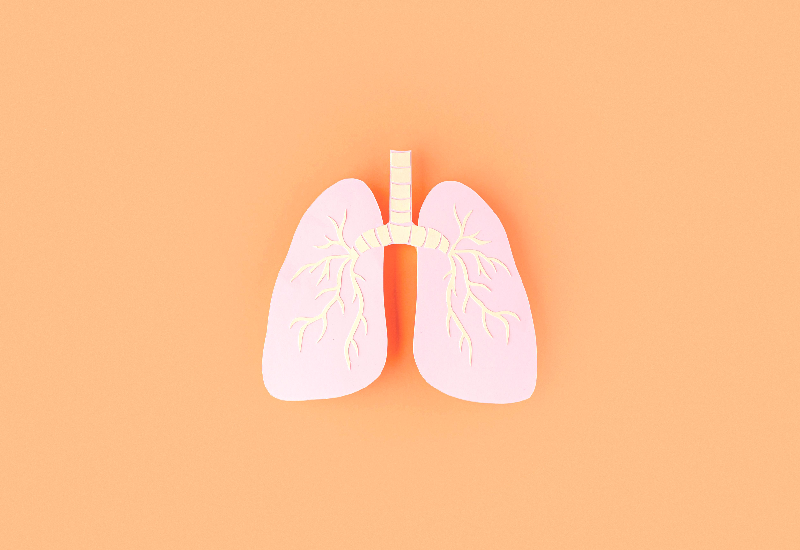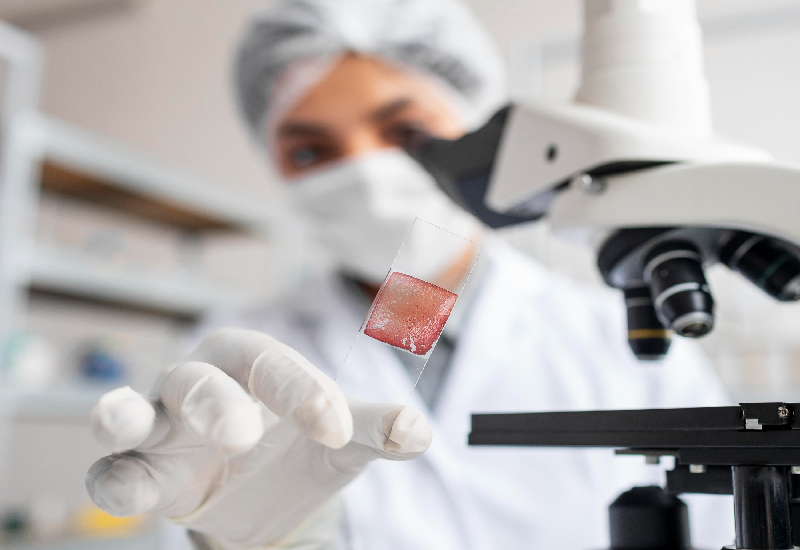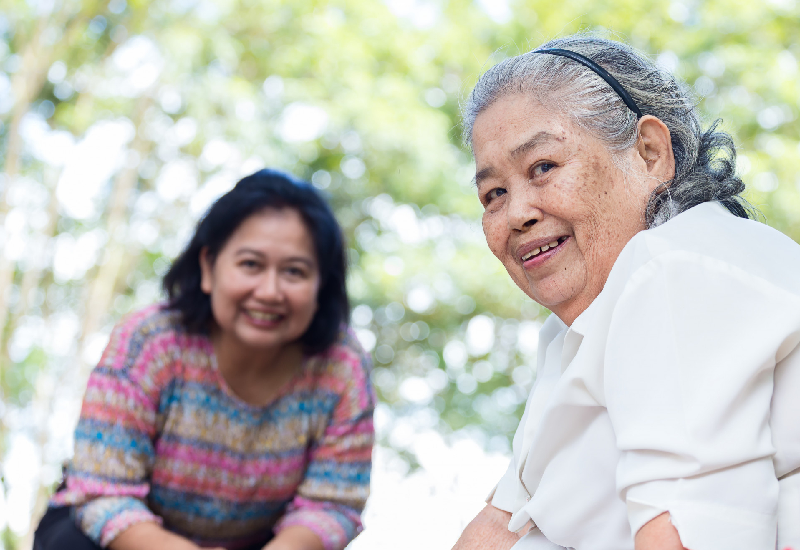Your genes hold the key to your cancer growth and how effectively you fight it. Genetic testing unlocks this valuable information, allowing doctors to tailor treatment plans specifically for you.
Certain gene mutations can make you more susceptible to cancer, while others influence how your cancer responds to treatment.
Traditional cancer therapies often take a “one size fits all” approach, like surgery, chemotherapy, and radiation. These treatments, while effective, can be harsh on healthy cells, causing unwanted side effects.
The good news is that cancer care approaches have advanced! Now, doctors can analyze the genetic makeup of your specific cancer cells. These cancer cells, unlike healthy cells, have unique mutations that allow them to form tumors. These mutations can differ greatly from person to person.
By knowing your genetic fingerprint, doctors can design a targeted treatment plan that attacks the cancer’s weaknesses, potentially leading to a better prognosis and fewer side effects.
Cancer’s link to genetics
Genes are present in the DNA of every cell in your body. Each gene has a code that creates a particular protein, and each protein has a role to serve. Genes are the instructions for the cell to produce the proteins necessary for them to function.
When cells divide and copy their genes, sometimes mistakes happen. These “copy errors” are called mutations and can occur in two ways. They might be inherited from your parents’ DNA (like getting a slightly outdated instruction manual), or they can develop throughout your life (like typos creeping into the manual over time).
Some people inherit genetic variations from their parents that make them more likely to develop cancer. For example, mutations in the BRCA1 and BRCA2 genes are linked to a higher risk of breast and ovarian cancers. These inherited mutations can affect two types of genes: oncogenes (like an overactive “grow now!” button) and tumor suppressor genes (like a broken “stop growing” signal). When these genes mutate, the normal cell growth process goes haywire, increasing cancer risk.
Exposure to things like sunlight, smoking, or certain chemicals can also trigger mutations in your genes. These acquired mutations can give cells an unfair advantage, allowing them to grow out of control and avoid the body’s natural checks and balances, ultimately leading to the formation of cancerous tumors.
Growth of cancer by genes
Many genetic mutations are harmless, but some can lead to significant issues. Cancer cells are essentially modified versions of normal cells, and certain genetic alterations can increase an individual’s susceptibility to specific cancers.
By examining the genes in cancer cells, researchers can identify the mutations responsible for tumor growth. Genetic testing can pinpoint these changes, aiding in the implementation of preventive measures or early detection strategies.
This genetic information helps identify unique gene changes in a patient’s cancer, allowing doctors to choose targeted therapies that specifically address these mutations.
 Treatment decisions for cancer affected by genes
Treatment decisions for cancer affected by genes
When a patient has a confirmed cancer diagnosis, specific genetic changes can affect treatment outcomes. Genetic testing can reveal how one patient’s cancer differs from another’s, even if they have the same type of cancer but different genetic alterations.
Knowledge of genetic mutations can also predict how well the cancer might respond to a particular treatment. Traditional cancer treatments are often standardized for a specific type of cancer, but genetic variations in cancer cells mean that patients with the same cancer type might respond differently to the same medication.
Cancer tests, such as those offered by us, identify these genetic mutations, providing insights into which drugs might be more effective for a particular patient’s cancer.
Rather than using a one-size-fits-all approach, our clinicians focus on targeting the specific genetic abnormalities in a patient’s cancer cells. This involves identifying mutations in genes that drive the cancer’s growth and survival and tailoring treatment to the individual’s unique genetic profile.
Individualized treatment plans
The genetic insights gained from liquid biopsies are essential for developing tailored treatment plans. Our clinicians consider the unique genetic characteristics of the patient and their cancer to determine the most effective interventions that enhance the chances of successful treatment.
Our exclusive CAMBISeq® test can identify even the rarest genetic mutations in a blood sample. With CAMBISeq®, clinicians can detect variants in up to 500 genes, using them as biomarkers to evaluate a patient’s responsiveness to various therapies, including immunotherapy.
The exceptional sensitivity of this test is particularly valuable when conventional first-line treatments have been exhausted. In such cases, CAMBISeq® can help determine if advanced treatment options, such as immunotherapy, targeted therapies, or participation in clinical trials, may be beneficial.
By revealing the specific genetic mutations present in a patient’s cancer, this test enables personalized treatment decisions, steering the course toward more successful cancer care.


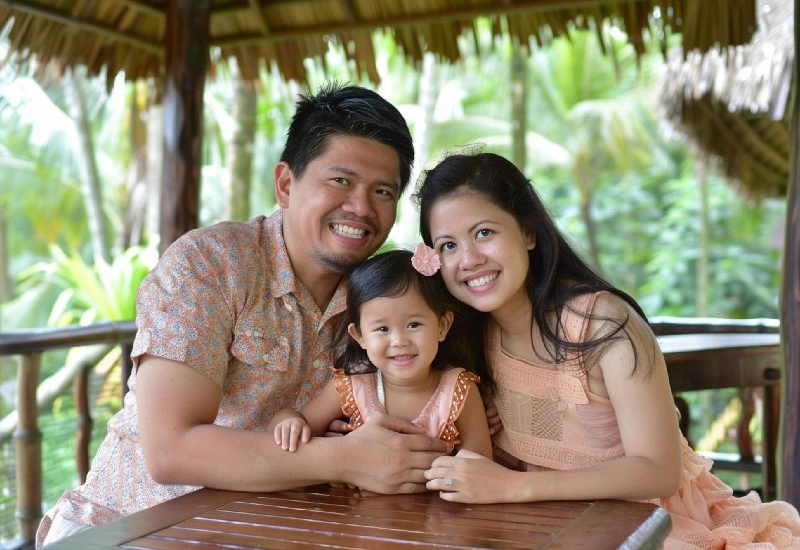
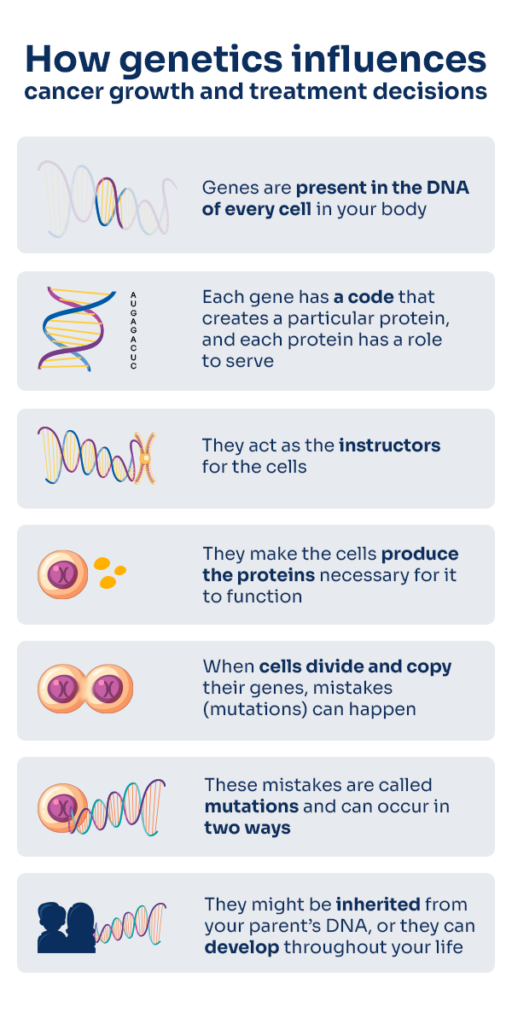 Treatment decisions for cancer affected by genes
Treatment decisions for cancer affected by genes

